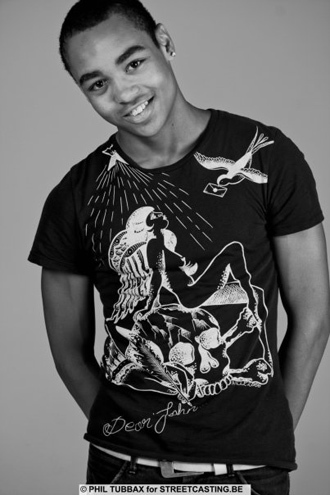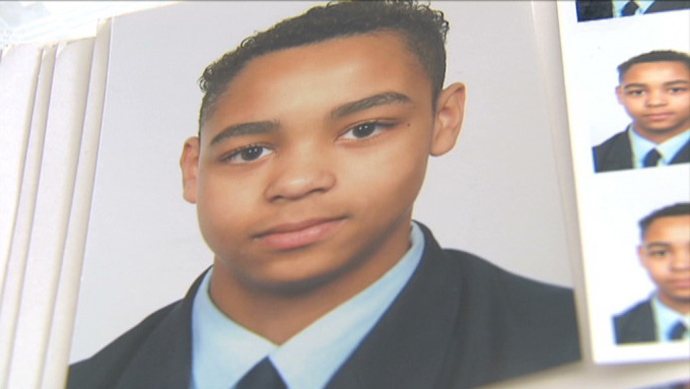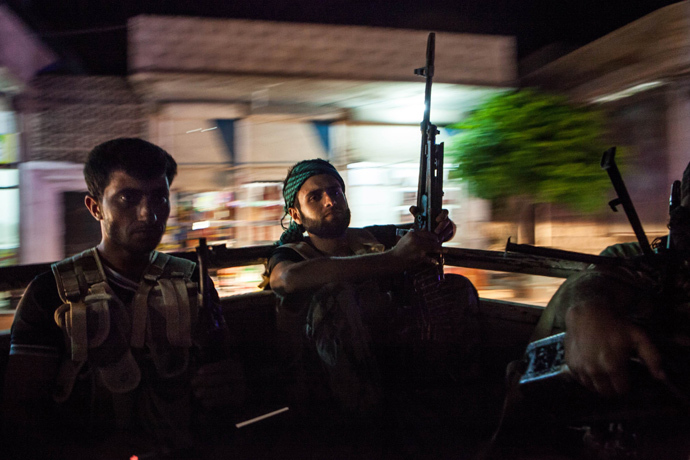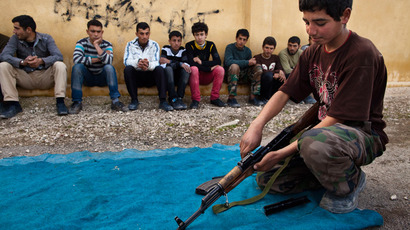'My son was radicalized, recruited to join jihad in Syria' - Belgian father
Accounts of Belgian youths joining the rebel forces in Syria have raised questions about the radicalization process in the country. RT has interviewed one father who driven by love placed his life at risk to find his son.
Dimitri Bontinck is on a crusade to find his son Jejoen and
return with him to Belgium, after the teenager fled to fight with
the jihadists against government forces. The last time the father
saw his son was in March when Jejoen informed him that he was
going to study in Egypt.
Bontinck claims that his son underwent an Islamic radicalization
process which took approximately two years. Prior to Jejoen’s
conversion to Islam, his father said he was raised Catholic.
Jejoen lived with his Belgian father and Nigerian mother in
Antwerp, Belgium's second largest city.

Bontinck believes that his teenage son embarked on the path of Islam after a failed teenage love affair, after which Jejoen became involved with a “Moroccan girlfriend who changed his mind to become Muslim.”
His father claimed that the new convert started going to a local
Mosque where he was “converted by Sharia4Belgium,” a
radical Salafist organisation which denounces democracy and calls
for the creation of an Islamic state in Belgium. Sharia4Belgium
was officially disbanded, but the organisation claims to continue
to have influence.
The father alleges that his son was later brought to the
organization’s headquarters where the teenager underwent
“transformation” to the point where his parents “could
not recognize our own son anymore.” The
“indoctrination,” the father says changed his son’s
physical appearance when he grew a beard. Jejoen then traveled to
the Netherlands with “Muslim brothers” and on to Cairo,
where this group promised to give him money to study Islam.
“I did not trust it, I had a feeling that something was going
wrong, because I’ve received news from other parents in Western
Europe” that their kids ended up in Syria fighting the
government forces, Bontinck told viewers.
After weeks of failing to reach his son and discovering videos of him with members of Sharia4Belgium made by a studio in Aleppo, Bontinck concluded that Jejoen had joined a group of young Belgians in Syria and went to the country to find his son.

Once he got to Syria, one group “kidnapped" Bontinck.
"They put a cap over me. I was almost dead,” he told RT,
adding that they accused him of “being a spy working with the
CIA.”
He never got a chance to see his son. Bontinck says that parents
don’t know “anything” about their teenagers once they
reach Syria. “No phone calls, no contact, no Skype. Nothing.”
The jihadists groups fighting in Syria, the father says,
“kidnap” the European youth and are “using these young
children. They don’t want them to see their family, or that they
go back to Europe.” Bontinck urged the international
community to “stand up and react” to get the children back home.

The European parliament on Thursday was urged by nine European
nations to review plans for an EU-wide passenger data list that
politicians argue would help prevent suspected militants
traveling to fight in Syria. Member states fear that an estimated
600 EU residents are believed to be fighting against Assad forces
will return home to carry out attacks in Europe.
Earlier attempts to introduce legislation that would require
airlines to share personal data on their customers failed in
April. Concerned about privacy issues, the introduction of
"Passenger Name Record" (PNI) failed to get approval from
lawmakers.
If the new bid is successful, airlines would be required to
provide information to member states of passengers entering or
leaving the EU. Sixteen EU states assemble passenger data but do
share it with their neighbors.
The petition by the interior ministers of France and Belgium,
Germany, Italy, Luxembourg, the Netherlands, Poland, Britain and
Sweden underlined "the importance, for the security of the
European Union and those who live within it, of being able to
quickly have at our disposal a PNR system offering a high level
of privacy protection," the statement said.














